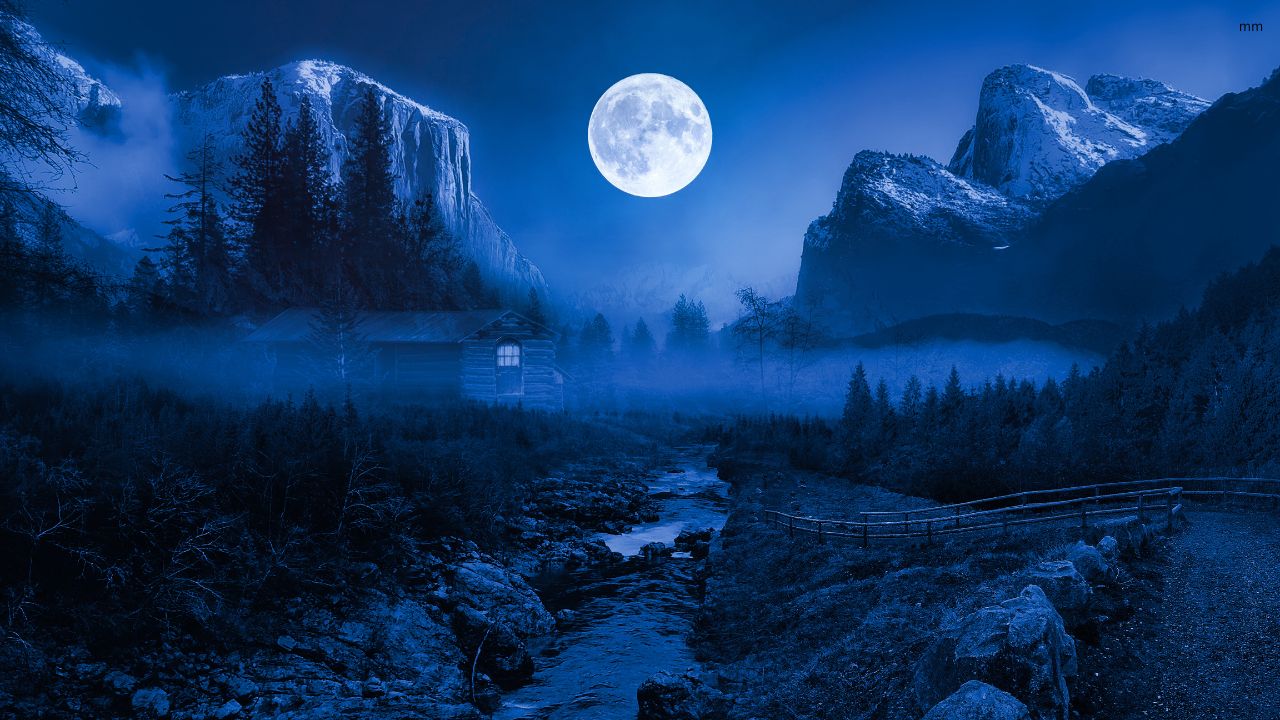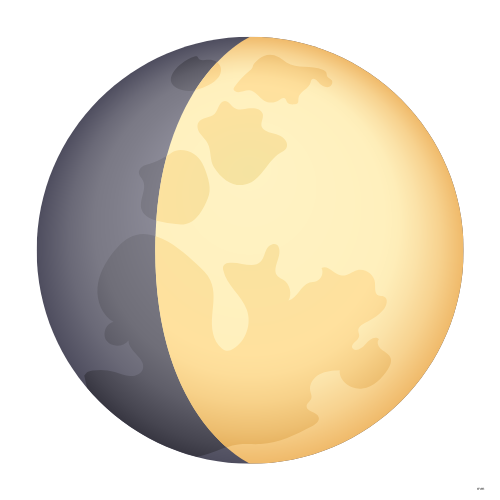
Could the moon truly be influencing our nights?
For centuries, the moon has captivated human imagination. From ancient myths to modern science, people have long suspected that lunar cycles influence everything from tides and animal behavior to human emotions and health. One of the most intriguing areas of research is how the moon affects sleep patterns.
While scientific consensus remains a topic of debate, emerging studies suggest that the moon's phases—particularly the full moon—may subtly impact sleep quality, duration, and circadian rhythms. This article explores the connection between lunar cycles and sleep, reviewing historical beliefs, recent scientific findings, possible biological mechanisms, and practical tips for improving sleep regardless of the moon phase.
Whether you're someone who feels more restless during a full moon or simply curious about how natural cycles affect your rest, this comprehensive guide will provide you with actionable insights backed by science.
Table of Contents
Historical Beliefs About the Moon and Sleep
Long before the advent of modern sleep science, cultures across the world attributed various effects to the moon. The word "lunatic" itself derives from the Latin lunaticus, meaning "moonstruck," reflecting the belief that the moon could influence mental health and behavior.
Ancient Wisdom and Lunar Influence
In many indigenous traditions, the full moon was associated with heightened energy, emotional instability, and disrupted sleep. Rituals and ceremonies were often scheduled around lunar phases, recognizing the moon as a powerful celestial force affecting both nature and humanity.
- Before artificial lighting, the full moon provided significantly more nighttime illumination.
- Increased natural light may have altered sleep-wake patterns.
- Early observations linked full moons to delayed bedtimes or lighter sleep.
Despite these early observations, it wasn't until the 21st century that researchers began systematically investigating whether the moon truly influences sleep, independent of environmental factors like light pollution.
Folklore Fact:
Many traditional farming almanacs still include advice on planting and harvesting based on moon phases, suggesting a long-held belief in lunar agricultural influences.
Scientific Research on Lunar Cycles and Sleep
In recent years, several peer-reviewed studies have explored the relationship between lunar phases and sleep. While results are mixed, some compelling evidence suggests that lunar cycles do play a role in sleep regulation.
2013 Study: Full Moon and Reduced Sleep
- Participants took ~5 mins longer to fall asleep.
- Total sleep duration decreased by ~20 minutes.
- Reduced deep sleep (delta activity) observed.
Study by Cajochen et al. in *Current Biology* (2013), conducted in controlled lab conditions without external light cues, suggesting a biological effect.
2021 Study: Lunar Phase and Sleep Across Ages
- Children and adolescents showed more disruptions.
- Adults had slightly reduced total sleep time.
- Sleep onset shifted later (~10–20 mins).
Large-scale study in *Science Advances* (2021) analyzed 4,000+ individuals using objective sleep trackers.
Not all studies confirm a link; a 2016 meta-analysis found no consistent evidence, citing methodological challenges. However, the accumulating research suggests that the moon's effect, while subtle, can be detectable under controlled conditions.
Possible Mechanisms Behind Lunar Influences on Sleep
If the moon does influence sleep, what biological or environmental mechanisms could explain this phenomenon?
Theory
- Moon's gravity causes ocean tides.
- Could similar "biological tides" occur in body fluids?
Scientific View
- Gravitational effect on individuals is negligible.
- Lacks strong empirical support.
Fluid Dynamics
While the concept is intriguing, the sheer scale difference between oceans and human bodies makes a direct tidal effect on internal fluids highly unlikely to be significant.
Some marine animals exhibit clear **circalunar rhythms**—biological cycles that align with the lunar month. Humans possess circadian rhythms, but could we also have a weaker, residual circalunar rhythm embedded in our biology?
Melatonin Connection
Scientists speculate that ancestral sensitivities to lunar cycles might be linked to melatonin production or other hormonal pathways, but more research is needed.
Historically, the full moon provided enough ambient light to delay bedtimes. Even today, in rural or low-light environments, people may experience subtle changes in their sleep schedules due to increased nocturnal illumination.
Modern Impact
While artificial lighting in urban areas largely negates moonlight's direct impact on brightness, the historical link between light and sleep disruption remains relevant.
Belief in the moon’s power can shape expectations and behaviors. If someone believes they’ll sleep poorly during a full moon, they may become anxious or hyper-aware of minor sleep disturbances.
Self-Fulfilling Prophecy
This placebo-like effect may amplify perceived sleep problems, making it difficult to distinguish between real physiological changes and psychological perceptions.
Who Is Most Affected by Lunar Cycles?
While the moon’s influence on sleep appears subtle, certain populations seem more vulnerable to its effects.
Populations More Sensitive to Lunar Influences
- Children and Adolescents: May show more pronounced sleep disruptions due to developing circadian systems, higher sensitivity to environmental cues, and less rigid sleep schedules.
- People Living in Rural Areas: Greater exposure to natural moonlight can lead to stronger perceived effects, as artificial light pollution is minimal.
- Individuals with High Lunar Awareness: Those who follow astrology or practice moon rituals may be more susceptible to psychological influences and anticipatory anxiety.
Understanding these sensitivities can help tailor sleep strategies for different groups.
Practical Tips for Better Sleep During Full Moons
Regardless of whether lunar cycles directly affect your sleep, taking steps to improve sleep hygiene is always beneficial. Here are some strategies to help you sleep better during any moon phase:
Optimize Your Sleep Environment
- Use blackout curtains or eye masks to block light.
- Keep the bedroom cool, quiet, and dark.
- Invest in a quality mattress and bedding.
Establish Healthy Sleep Habits
- Maintain a consistent sleep schedule.
- Limit screen time at least one hour before bed.
- Avoid stimulants (caffeine, nicotine, alcohol) late at night.
Additionally, practicing relaxation techniques like meditation or deep breathing can calm the mind and prepare your body for sleep, especially if you're feeling restless or anxious.
Myths vs. Facts: Separating Truth from Superstition
With so much folklore surrounding the moon and sleep, it’s important to separate myth from reality.
| Myth | Fact |
|---|---|
| The full moon causes insomnia in everyone. | Only some individuals report sleep disturbances; effects are generally mild and inconsistent. |
| The moon increases aggression and madness. | No credible evidence supports the idea that the full moon causes violence or insanity. |
| You should never sleep facing the moon. | There’s no scientific basis for directional sleeping practices related to lunar phases. |
| Lunar effects on sleep are purely psychological. | While perception plays a role, some studies show measurable changes in sleep architecture. |
Understanding these distinctions helps dispel fear-based beliefs and encourages a more rational approach to sleep health.
The Role of Culture and Folklore in Sleep Perception
Cultural narratives significantly shape how we interpret bodily experiences. In many societies, the full moon is associated with supernatural events, emotional highs, and erratic behavior.
How Cultural Beliefs Influence Sleep
These associations can influence how people perceive their sleep. For example, a person who believes the full moon causes nightmares may remember dreams more vividly, or someone expecting poor sleep may subconsciously alter their behavior (e.g., staying up late, worrying). This interplay between culture and biology underscores the importance of addressing both environmental and psychological factors when studying sleep.
Future Directions in Lunar-Sleep Research
As technology advances, researchers are developing new tools to investigate the moon-sleep connection more precisely.
Next Steps in Research
- Wearable Sleep Trackers and Big Data: Analyzing millions of sleep records from fitness trackers alongside lunar calendars to identify subtle trends.
- Chronobiology and Genetic Factors: Exploring whether genetic markers make individuals more or less sensitive to lunar influences and how lunar signals interact with circadian rhythms.
- Space-Based Sleep Studies: Understanding how unique light-dark cycles in extraterrestrial environments (e.g., lunar habitats) affect astronaut sleep.
Conclusion: Embracing Science and Mindfulness for Better Sleep
While the idea that the moon affects sleep remains controversial, scientific inquiry continues to uncover fascinating connections between celestial rhythms and human physiology.
Final Takeaways for Restful Nights
- Lunar effects on sleep are generally modest but detectable in some studies.
- Factors like light exposure, biological rhythms, and psychological expectations may play roles.
- Good sleep hygiene is universally beneficial, regardless of moon phase.
- Distinguish between scientific findings and cultural folklore for a balanced perspective.
Ultimately, good sleep hygiene, stress management, and a balanced perspective on lunar myths are key to ensuring restful nights—whether under a full moon or a new moon. By combining scientific knowledge with mindful living, we can navigate the ebb and flow of natural cycles while prioritizing our health and well-being.
Ready to Explore More Lunar Insights?
Discover Your Moon Sign!FAQs: Frequently Asked Questions About the Moon and Sleep
References and Further Reading
- Cajochen, C., et al. (2013). Evidence that the lunar cycle influences human sleep. *Current Biology*, 23(15), 1485–1488.
- Smith, R. P., et al. (2021). Lunar phase effects on human sleep in a large observational cohort. *Science Advances*, 7(12), eabf9260.
- Foster, R. G., & Kreitzman, L. (2017). *Rhythms of Life: The Biological Clocks That Control the Daily Lives of Every Living Thing*. Yale University Press.
- National Sleep Foundation. (2022). How Light Affects Sleep. sleepfoundation.org
- Walker, M. (2017). *Why We Sleep: Unlocking the Power of Sleep and Dreams*. Scribner.
Final Thoughts
The moon’s influence on sleep remains a captivating subject that blends science, culture, and personal experience. Whether through subtle biological rhythms or symbolic significance, lunar cycles remind us of our deep connection to the cosmos.
By staying informed, practicing good sleep habits, and remaining open to both tradition and innovation, we can honor the mysteries of the night sky while enjoying peaceful, rejuvenating rest.
🌙 *Sweet dreams and starry nights.*
Current Moon Phase
Find Your Moon Sign
For accurate results, use exact birth time if possible.
Most Popular Moon Signs
-
23%Moon in ScorpioDeep, intense emotional nature
-
18%Moon in PiscesSensitive and compassionate
-
15%Moon in LeoDramatic and warm-hearted
-
12%Moon in CancerNurturing and home-loving
-
10%Moon in TaurusSteady and comfort-seeking
Based on visitor calculations from MoonPhaseToday.net
